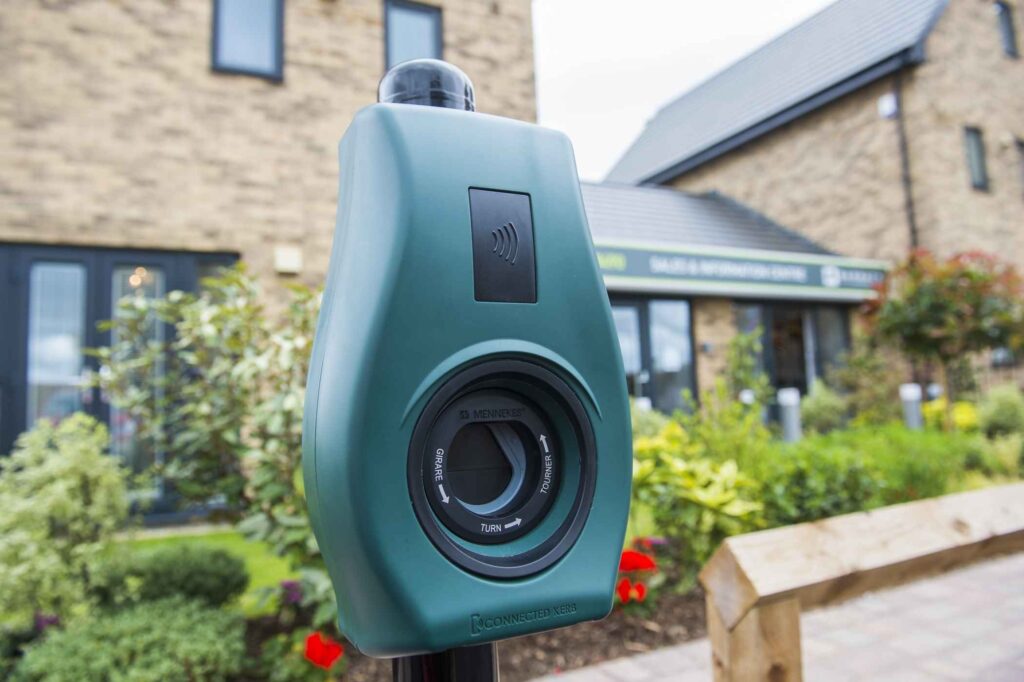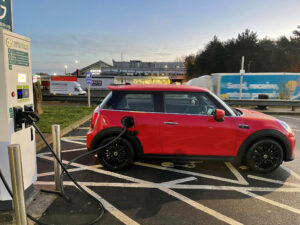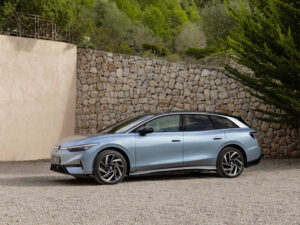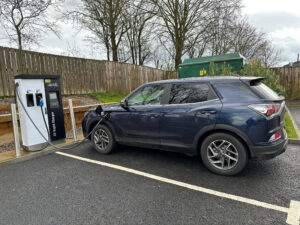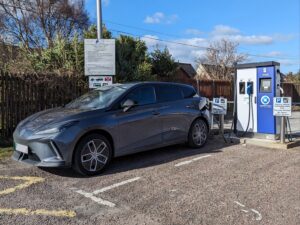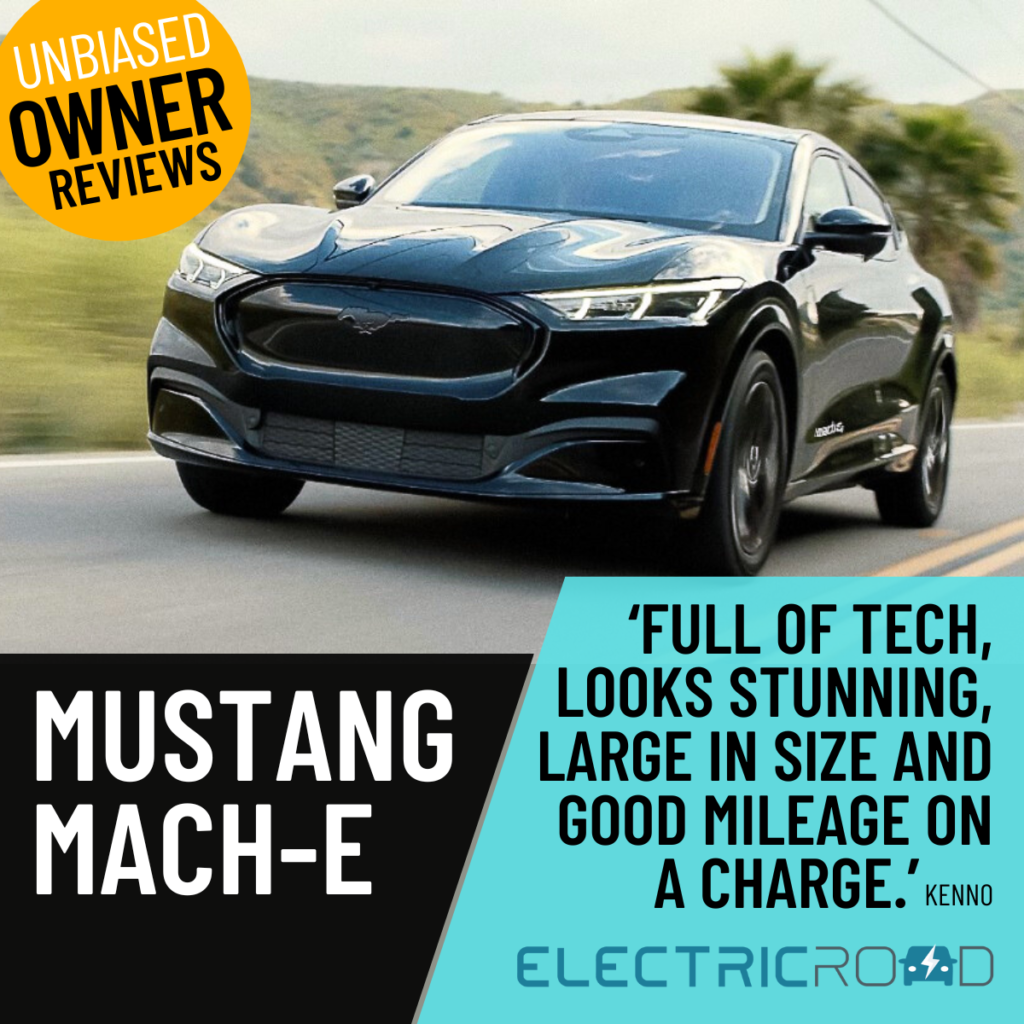In a new report published today, industry leaders, including experts from EY, UKPN, Motability, Mitie Group PLC and Connected Kerb, unanimously call for a ‘step change’ in the ambition of the UK’s EV charging rollout to deliver the 2030 ban on new petrol and diesel cars and support the UK’s net zero goals.
‘How to meet the UK’s EV charging needs by 2030’, published by EV charging infrastructure specialist Connected Kerb, draws on new consumer research and insights from 11 industry-leading experts. It outlines what national and local government, investors, developers, and charging point providers must do to ensure the UK is able to deliver ubiquitous, affordable and easy-to-access charging points for all.
EV registrations are exploding in the UK, up 154% year to date in February 2022 compared to 2021[i] and are forecast to outstrip diesel and hybrid sales by the end of 2022.[ii] However, public EV charging isn’t keeping pace and the ratio of EV charge points to plug-in cars deteriorated by 31% during 2020 alone. This puts Britain’s current ratio (16:1) behind other countries including South Korea (3:1), the Netherlands (5:1), France (10:1), Belgium and Japan (both 13:1).[iii] It is estimated that the number of charge points will need to increase ten-fold by 2030 to cater to the new numbers of EV drivers.[iv]
“Solving the EV charging challenge is absolutely fundamental to achieving a cleaner, and fairer transport future,” said Chris Pateman-Jones, CEO of Connected Kerb. “There is an opportunity ahead of us to make a real and positive impact, reducing UK transport emissions, whilst positioning the UK as a world leader on EVs. Our report highlights the need for a collaborative approach between different stakeholders within the industry and identifies a roadmap to ensure the UK’s charging infrastructure is fit for purpose, ready to unlock a future of zero-emission transport.”
Get our FREE ‘Guide to the Best Electric Cars’ e-mailed directly to your inbox
While rapid and ultra-rapid charging is developing well in public spaces such as car parks and motorway service stations, new consumer research released as part of the report indicates that the demands of drivers require affordable and easy-to-access chargers to be installed on virtually every residential street across the UK; with 80% of respondents saying that reliable and affordable chargers located where their car is parked while at home is ‘essential’ or ‘very important’ to their decision on switching to an EV. To deliver this ambitious goal and unlock the large-scale shift to EVs, the report identifies five key areas of action:
- ‘Think big’: Those deploying EV charging, particularly local authorities which are in a unique position to deploy at scale, must step up their ambitions for EV charging deployments, ‘think big’ and install thousands of chargers, not tens.
- Understand demand: Use an evidence-based approach to determine the size of user base and dwell time and forecast how this will change over time. If most parking is overnight or all day, many 7kW long dwell chargers may be better than a few expensive rapid chargers. If it is mixed-use, multiple options may be needed.
- Longer-term financing: Focussing on future-proofed, long-life durable chargers will unlock long term contracts. 5-year contracts will attract short term finance looking for fast returns, limiting deployment of chargers to areas of high early EV uptake. 20-year contracts will attract patient infrastructure capital willing to forgo profits for 10+ years. This unlocks low capital costs and enables large scale rapid deployment now, ahead of growing demand.
- Install ahead of demand: Anticipating how EV use will grow and installing the ‘behind-the-scenes’ ground infrastructure from the start, such as grid connections and passive ducting, enables more flexible expansion once EV uptake increases, charging sockets can simply be added later, saving money and time.
- Inclusivity: There will be 2.7 million UK drivers or passengers with a disability by 2035.[v] This group disproportionately lives in homes without private parking and is less likely to switch to EVs without very reliable access to charging. All parties must provide sufficient charging that is designed to be inclusive of drivers with disabilities.
- Education and engagement: Lack of understanding about the benefits of EVs remains a key barrier to EV adoption. Focusing on centralised education programmes and community engagement on the benefits of driving electric can drive forward the transition.
Win your dream electric car here with Best of the Best (BOTB)!
Thierry Mortier, Global Digital & Innovation Lead for Energy at EY, said: “Long term infrastructure finance is the key that will unlock large scale deployment. In most cases, delivering quality EV charging, at a price people are willing to pay, comes with long payback periods. Rapids can make a quick buck in a few high margin areas but most EV chargers in residential areas and workplaces will only turn a profit for investors who are prepared to put long lasting kit in the ground and wait years to see EV adoption catch up. We have to understand driver behaviour and adopt a roll-out based on those insights, not just where there is traffic today”.
Yogesh Patel, Innovation Director at Eurovia UK and contributor to the report, said: “Local authorities need to think bigger and longer term. We need to act at pace, and at scale. Thinking in the hundreds and thousands to meet local demand and future needs, rather than the much smaller numbers currently being delivered.”
Connected Kerb, which is pioneering long-term financing models, secured contracts for 10,000 chargers in 2021 alone, including a tender with West Sussex believed to be the UK’s largest ever deployment by a local authority. It expects to sign deals for a further 30,000 this year as part of its objective of deploying 190,000 chargers by 2030 to ‘level up’ EV charging across the UK.
Chris Pateman-Jones, CEO of Connected Kerb, said: “The industry is migrating from early adopters, tolerant of patchy performance, to a mass market of mainstream drivers that rightly expect consistent high performance. This demands a radical change of mindset amongst national and local government, investors, developers, and charging point providers. Connected Kerb is leading the charge with mass deployment of EV charging infrastructure. We believe this report will help galvanise action across the industry to deliver a comprehensive and equitable EV transition.”
Notes:
[i] https://www.smmt.co.uk/vehicle-data/car-registrations/
[ii] https://heycar.co.uk/blog/electric-cars-statistics-and-projections
[iii] https://www.smmt.co.uk/2021/11/car-charging-point-numbers-fall-behind-as-plug-in-vehicles-surge/
[iv] https://www.driving.co.uk/news/roads/uk-needs-ten-times-chargepoints-2030/
[v] https://www.motability.org.uk/impact-and-innovation/innovation/electric-vehicle-project/


